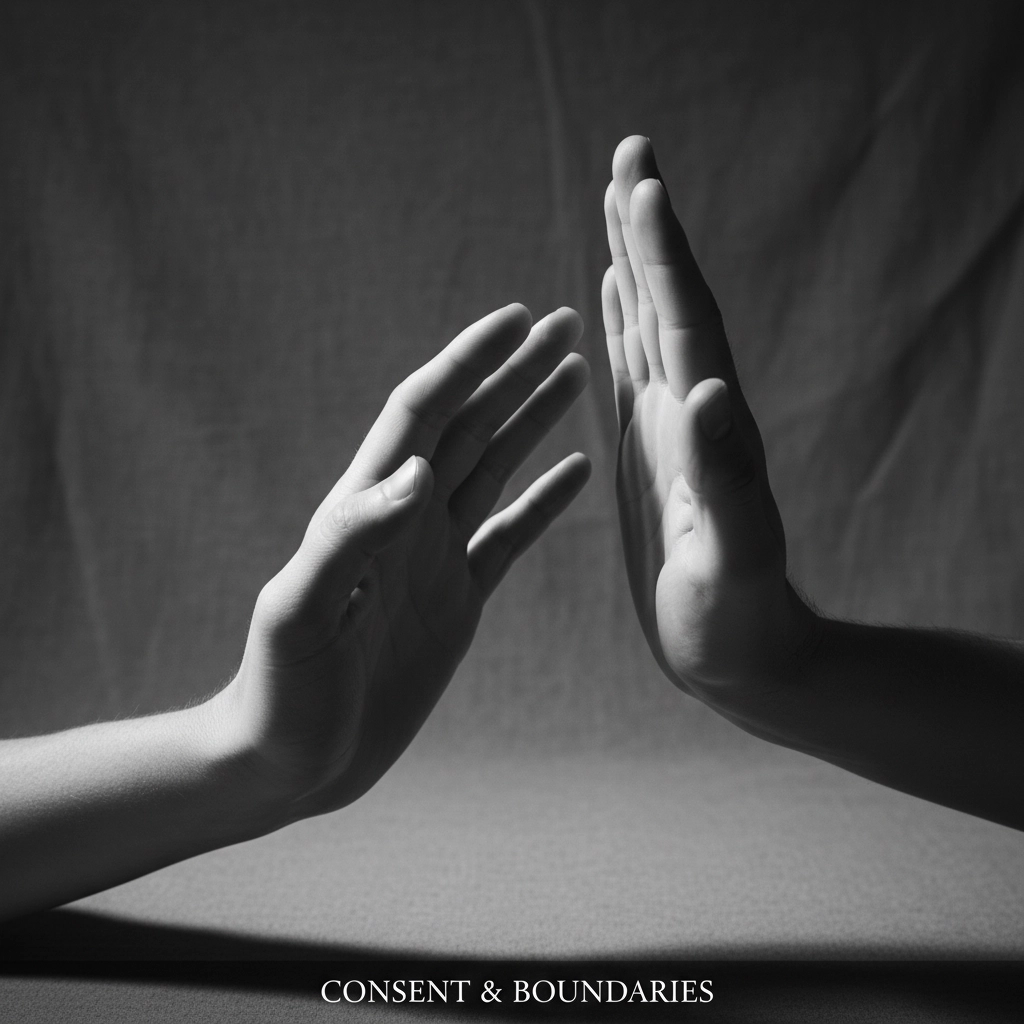Let's be real – the tantric world can be a minefield when you're searching for authentic guidance. With so many self-proclaimed "masters" and weekend-certified teachers out there, it's easier than ever to end up with someone who's more interested in your wallet (or worse) than your spiritual growth.
Finding the right teacher is crucial. We're talking about deep, transformative work that involves vulnerability, intimacy, and sacred practices. The wrong teacher can set you back years or even cause real harm. So let's cut through the spiritual BS and talk about the red flags that should have you running for the door.
1. They Can't Explain Their Lineage (Or Don't Have One)
A genuine tantric teacher should be able to trace their knowledge back through a legitimate lineage. This isn't about spiritual snobbery – it's about authenticity and proper training.
If your potential teacher gets vague when you ask about their background, starts name-dropping without specifics, or claims they "received their knowledge directly from the universe," that's your first warning sign. Real tantric masters have studied for years, often decades, under qualified teachers who can verify their training.
Ask direct questions: Who did you study with? For how long? What specific practices were you authorized to teach? If they dodge these questions or get defensive, keep looking.

2. They Promise Quick Enlightenment or Magical Powers
Anyone promising you'll achieve enlightenment in a weekend workshop or develop supernatural abilities after their course is selling you fantasy, not spirituality. Authentic tantric practice is a lifelong journey that requires dedication, patience, and consistent work.
Be especially wary of teachers who claim they can:
- Awaken your kundalini instantly
- Give you psychic powers
- Guarantee enlightenment by a certain date
- Heal all your traumas in one session
Real transformation happens gradually through sustained practice, not through magical shortcuts.
3. Inappropriate Boundaries Around Touch and Intimacy
This is probably the biggest red flag in tantric teaching. While authentic tantra does involve working with sexual energy, legitimate teachers maintain strict professional boundaries.
Warning signs include:
- Suggesting private "healing" sessions that involve nudity or sexual contact
- Making you feel like refusing physical contact means you're "blocked" or not serious about the work
- Any sexual or romantic advances toward students
- Requiring nudity when it's not necessary for the specific practice
- Using "tantric healing" as code for sexual services
A real teacher will always prioritize your comfort and consent. They'll explain exactly what any physical practice involves before you begin, and they'll never pressure you into anything.
4. They Lack Emotional Stability and Self-Control
Tantric teachers should embody the qualities they're trying to help you develop. If your teacher regularly displays anger, jealousy, arrogance, or other uncontrolled emotions, how can they guide you toward balance and mastery?
Watch for:
- Explosive anger or mood swings
- Jealousy toward other teachers or students
- Excessive ego and boasting about their achievements
- Inability to handle criticism or questions
- Drama and conflict in their personal relationships
A genuine teacher maintains equanimity even under pressure. Being around them should feel calming and centering, not chaotic or emotionally charged.

5. Financial Exploitation and High-Pressure Sales
While teachers deserve fair compensation for their time and expertise, be cautious of those who seem more focused on money than spiritual development.
Red flags include:
- Extremely high fees with no sliding scale options
- Pressure to sign up for expensive multi-year programs immediately
- Claims that you need to invest large amounts to show your "commitment"
- Selling expensive "blessed" objects or supplements
- Creating financial dependency by discouraging students from working
Good teachers price their services reasonably, offer payment options when possible, and never use financial pressure as a spiritual teaching tool.
6. Isolation from Friends and Family
Cult-like behavior is unfortunately common in spiritual communities. Authentic teachers encourage healthy relationships and community connections – they don't isolate you from your support network.
Be concerned if your teacher:
- Discourages contact with family and friends
- Claims your loved ones "don't understand" your spiritual growth
- Insists that only people in their community can support your journey
- Creates an us-versus-them mentality
- Demands excessive time commitments that interfere with your other relationships
Your spiritual growth should enhance your existing relationships, not destroy them.
7. Poor Organization and Lack of Professionalism
While spiritual work doesn't need corporate polish, basic professionalism matters. A teacher who can't organize a workshop or maintain boundaries probably can't hold safe space for deep transformational work.
Warning signs:
- Consistently starting late or unprepared
- Unclear communication about what practices will involve
- Messy, chaotic workshop environments
- No clear agreements or consent protocols
- Mixing alcohol or drugs with spiritual practices
Professional teachers create clear containers for their work. They communicate expectations clearly and maintain organized, safe learning environments.

8. Demanding Unquestioning Obedience
Healthy teacher-student relationships involve respect, but not blind obedience. Teachers who demand you follow their instructions without question or who punish critical thinking are more interested in control than your growth.
Be wary of:
- Discouraging questions about practices or methods
- Claiming that doubt or questioning shows lack of faith
- Insisting on titles like "master" or demanding special treatment
- Punishing students who disagree or offer alternative perspectives
- Creating hierarchies where questioning authority is forbidden
Good teachers welcome questions and encourage students to think critically about their teachings.
9. Mixing Business and Personal Relationships Inappropriately
Professional boundaries exist for good reasons. Teachers who blur the lines between business, friendship, and romantic relationships create confusing and potentially harmful situations.
Watch out for:
- Teachers who date their students
- Mixing business partnerships with spiritual guidance
- Excessive personal involvement in students' lives
- Using student relationships for personal emotional support
- Creating complicated financial or living arrangements with students
Clear boundaries protect everyone involved and maintain the integrity of the teaching relationship.
10. Lack of Ongoing Training and Humility
The best teachers are eternal students. Be suspicious of anyone who claims to have "completed" their spiritual education or who never seeks additional training or guidance.
Good teachers:
- Continue studying with their own teachers or mentors
- Attend workshops and trainings to improve their skills
- Admit when they don't know something
- Refer students to other teachers when appropriate
- Show genuine humility about their level of realization
If someone acts like they have all the answers or never needs to learn anything new, they're probably not someone you want guiding your spiritual journey.
Trust Your Instincts
Beyond these specific red flags, your gut feeling is often your best guide. If something feels off, it probably is. Don't let spiritual concepts like "surrender" or "trust" override your basic common sense and self-protection instincts.
The right teacher will make you feel safe, supported, and genuinely seen. They'll meet you where you are while gently encouraging your growth. Most importantly, they'll help you develop your own inner wisdom rather than creating dependency on their guidance.
Take your time finding the right teacher. Ask lots of questions, observe how they interact with other students, and don't be afraid to walk away if something doesn't feel right. Your spiritual journey is too important to entrust to just anyone.



